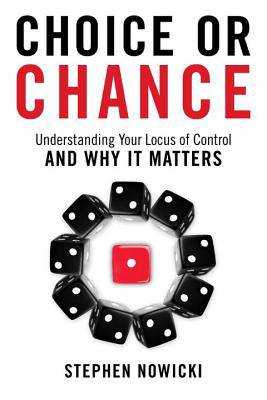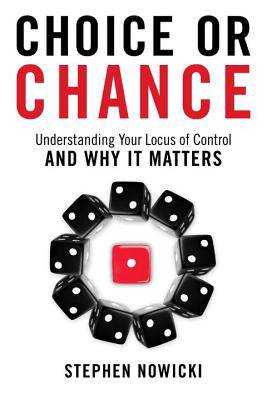
Bedankt voor het vertrouwen het afgelopen jaar! Om jou te bedanken bieden we GRATIS verzending (in België) aan op alles gedurende de hele maand januari.
- Afhalen na 1 uur in een winkel met voorraad
- In januari gratis thuislevering in België
- Ruim aanbod met 7 miljoen producten
Bedankt voor het vertrouwen het afgelopen jaar! Om jou te bedanken bieden we GRATIS verzending (in België) aan op alles gedurende de hele maand januari.
- Afhalen na 1 uur in een winkel met voorraad
- In januari gratis thuislevering in België
- Ruim aanbod met 7 miljoen producten
Zoeken
Choice or Chance
Understanding Your Locus of Control and Why It Matters
Stephen Nowicki
Paperback | Engels
€ 29,45
+ 58 punten
Omschrijving
Locus of Control (LOC) is a phrase used by psychologists to describe a widely effective way of assessing an individual's potential for success--personal, social, and financial. LOC measures how much you believe what happens to you is the result of your own actions or, conversely, of forces and circumstances beyond your control. People who accept that they are largely in control of their lives tend to do better than those who feel that fate or external factors rule what they do, especially in novel and difficult situations.This book explains LOC research, until now mainly confined to academic circles, in terms easily understandable to the average person. The author, a clinical psychologist who has spent nearly five decades investigating and writing about LOC, helps the reader to explore his or her own locus of control and what those orientations might mean for how life is lived. He then discusses the extensively documented relationship between LOC and academic achievement, personal and social adjustment, health, and financial success. He also describes how the Locus of Control is learned and demonstrates ways in which it can be changed to yield higher levels of achievement, success, personal satisfaction, and better interactions with others.Dr. Nowicki notes that there has been an increasing tendency among Americans to feel as though their lives are slipping out of their control, and he identifies ways to reverse this negative trend.
Specificaties
Betrokkenen
- Auteur(s):
- Uitgeverij:
Inhoud
- Aantal bladzijden:
- 272
- Taal:
- Engels
Eigenschappen
- Productcode (EAN):
- 9781633880702
- Verschijningsdatum:
- 17/05/2016
- Uitvoering:
- Paperback
- Formaat:
- Trade paperback (VS)
- Afmetingen:
- 150 mm x 226 mm
- Gewicht:
- 317 g

Alleen bij Standaard Boekhandel
+ 58 punten op je klantenkaart van Standaard Boekhandel
Beoordelingen
We publiceren alleen reviews die voldoen aan de voorwaarden voor reviews. Bekijk onze voorwaarden voor reviews.









